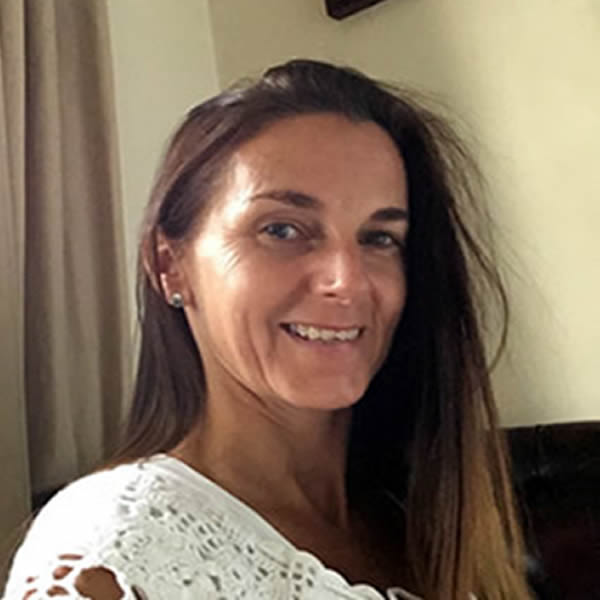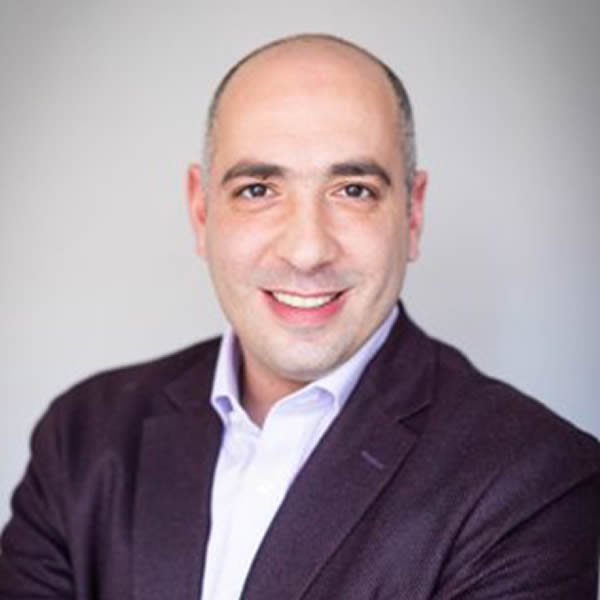Cervical erosion, Cervical Ectopy, Cervicitis
Colposcopy is a more detailed examination of the cervix. In this test a speculum is gently put into the vagina so the cervix can be seen. This part is exactly the same as for a cervical screening test. The doctor (or specialist nurse) uses a magnifier (colposcope) to look at the cervix in more detail. The actual colposcope does not go inside your vagina. A liquid is used to paint the cervix which shows up the abnormal cells. It takes longer than a normal cervical screening test (about 15 minutes). It is usually done in a specialist colposcopy clinic at hospital. During colposcopy it is usual to take a small piece of tissue from the cervix (biopsy) to make a more detailed assessment of the cells.
You may be referred for a colposcopy if you have one of the higher grades of abnormality on your smear test (usually moderate/severe dyskaryosis, invasive or glandular neoplasia). You may also be referred for colposcopy if you have had three inadequate or borderline results in a row or if you have had three abnormal results (of any grade) within a 10-year period. The laboratory that reports the cervical screening results will determine what action needs to be taken (based on the current result and your past results). Either the laboratory will refer you directly to colposcopy, or they may ask your GP to make this referral. This happens quite commonly, so you should try not to be too alarmed. Remember that in most cases, an abnormal cervical screening test does not mean you have cervical cancer. It is rare for cervical cancer to be diagnosed this way.
Before your colposcopy
You should receive written information about the procedure in advance of your appointment. If there is anything you don’t understand you can either ring the clinic directly, or discuss this with your GP. There are some things that you should think about before your colposcopy that can help you prepare:
- Some clinics prefer not to perform colposcopy whilst a woman is having her period. This is because it can be difficult to get a good view of the cervix if there is a lot of blood. Also, some women may prefer not to have an intimate examination whilst bleeding. If your period starts and you anticipate you will still be bleeding when you have your appointment, it is probably best that you telephone the clinic for advice. In some cases your appointment may be rearranged. Do not feel embarrassed about this – it is completely out of your control, and colposcopy clinics are very used to this sort of thing.
- You should avoid sex and not wear a tampon for 24 hours before your colposcopy.
- You should not use any vaginal creams or pessaries for 24 hours before your colposcopy This includes lubricants, thrush treatments, douches and spermicides.
- Some people find the colposcopy examination a little uncomfortable. For this reason, you may choose to take some paracetamol about an hour before your appointment.
- You may want to wear a loose, full skirt on the day of your colposcopy so that you do not have to remove all of your lower clothing.
- It is often a good idea to bring someone with you who can take you home after your colposcopy. This is most important if the clinic has told you that you may have treatment at your first appointment. They do not have to come into the examination room with you (but if you do want a friend or relative with you during your examination this is also possible).
Colposcopy Procedure
The whole procedure normally takes about 15-20 minutes. It may be longer if you have treatment at the same time (see below). It is best to allow an hour for the whole visit:
- The doctor or nurse will usually start by asking you some questions. These may include information about your periods, the date of your last period, what contraception you use and your general health. You will then be prepared for colposcopy examination on a couch.
- The doctor or nurse will then look through the colposcope to get a good view of your cervix. The colposcope itself does not go inside your vagina. It is essentially like a big pair of binoculars on a stand that can be moved around. There is also a light to help see inside your vagina. Sometimes, the colposcope can be attached to video equipment so that the examination can be viewed more clearly on a TV screen. This means that you have the opportunity to watch too (but only if you would like to!).
- A long swab (like a fat cotton bud) is used to apply liquids to the cervix. These liquid stain any abnormal cells that may be present. Two different liquids are normally used – acetic acid (like vinegar) and iodine.
- A biopsy (a small sample of tissue) from your cervix may also be taken. This will be sent to the laboratory for further examination. The biopsy is only about the size of a pinhead, but taking it can be slightly uncomfortable. If this is anticipated, local anaesthetic is usually used to numb the cervix first.
- Sometimes it is suggested that you have treatment at your first colposcopy visit (see below). However, often, you may be asked to return for treatment once the biopsy results are back.
- It is worth bringing a sanitary towel or panty liner with you, to use after your colposcopy. It is unlikely you would have much bleeding, but you might have some discharge or staining from the iodine used in the examination. There is more likely to be discharge or bleeding if you have had a biopsy or treatment.
After your Colposcopy
After your colposcopy you can usually return to work or carry on with your normal day. You are likely to have a small amount of bleeding, especially if you have had a biopsy. This can last for three to five days and you should wear a sanitary pad. Do not use tampons. You should not have sex or use vaginal creams or pessaries until the bleeding has stopped. Generally you should wait for five days. You may notice a dark fluid-like material on the pad. It is sometimes green or looks like coffee granules. This is normal and is the liquid that is painted on to your cervix during the examination.
Risks or Complications of Colposcopy
Colposcopy is generally a safe procedure. Some women find that it is a little uncomfortable. Rarely, complications can occur. These can include heavy bleeding and infection. If you experience any heavy bleeding, smelly vaginal discharge or severe lower abdominal pain, you should see a doctor as soon as possible.
The Biopsy Results
When a biopsy is taken, the sample of tissue is sent to the laboratory for further examination under a microscope. The cell abnormality that can be seen is called cervical intra-epithelial neoplasia (CIN). There is a scale from 1 to 3 according to the number of cells in the biopsy sample affected by CIN. In CIN1, only a few (1 in 3) cells are abnormal. In CIN3, all of the cells are abnormal. Rarely, a biopsy can show changes in your cells that have already developed into cancer. About 6 in 10 cases of CIN1 return to normal without treatment, but 1 in 10 progresses to CIN3. Only 1 in 100 cases of CIN1 becomes cancer (and this is over a long time). CIN2 and 3 still mean it is very unlikely you have or will develop cervical cancer. However, these changes are much less likely than CIN1 to get better on their own, without treatment. So, if CIN2 or 3 were found on your biopsy, you are likely to need treatment of these abnormal cells on your cervix. Remember that the whole point of cervical screening (and subsequent examination/treatment of abnormal cells at colposcopy) is to prevent cervical cancer. This is by detection and treatment of early changes in the cells, which, if left untreated or unchecked for some years, could develop into cancer.
Treatment Options
There are a number of different treatments available for CIN. The aim of the treatment is to destroy or remove all of the abnormal cells on your cervix without affecting too much normal tissue. Most treatments can be done as an outpatient, at colposcopy. The treatment may cause a little discomfort, perhaps similar to a period pain. The treatment that you have will depend on the extent of your abnormality as well as what treatment the clinic has available and the preference of the doctor or nurse. Treatment options include:
- Loop diathermy: a thin wire loop cuts through and removes the abnormal area of cells. This is also known as a large loop excision of the transformation zone (LLETZ). It is the most common form of treatment used in the UK.
- Cryotherapy: freezing the affected area of the cervix, which destroys the abnormal cells.
- Laser treatment: this destroys or cuts away abnormal cells.
- Cold coagulation: a heat source is used to burn away and remove the abnormal cells.
A local anaesthetic is usually given before any treatment, to numb the cervix. The treatment is normally very straightforward and quick. There is a small risk of bleeding at the time of treatment. Occasionally, the doctor or nurse may suggest that you have a cone biopsy (see Cone Biopsy) or, very rarely, a hysterectomy (removal of your uterus and cervix) as a treatment for CIN. If this is the case, you will need to be admitted to hospital.
After Treatment Care
You may have some mild discomfort, like a period pain, after your treatment. Painkillers such as paracetamol may help to ease the pain.You are likely to have some bloody vaginal discharge. This can last up to six weeks. It is like the blood loss during a period. If you are worried that it is too heavy,or if it becomes smelly, then see your usual doctor. You should use sanitary pads and not tampons. You should avoid sex and not do any heavy exercise until the discharge has stopped.
Follow-up Plans
This depends on the results of your colposcopy and whether you needed any treatment. Some women may need a follow-up colposcopy examination. Other women may just need a follow-up cervical screening test, usually after about four months. The doctor or nurse who performs your colposcopy will advise what follow-up you will need. Most colposcopy clinics will see you again four to six months after your first examination or treatment. If all is well at your follow-up appointment, you will be given advice about when you should have your next cervical screening test. This test can be carried out by your usual clinic or GP surgery. You will usually be advised to have a cervical screening test every year for a number of years (often 10 years if you had CIN2 or 3). If you have any further abnormal cervical screening test results you may need to have another colposcopy examination. Treatment of CIN is usually almost 100% effective. In the vast majority of women, it is unlikely that CIN will come back.
HPV Testing (The Future of Cervical Screening)
The Sentinel Implementation Project is being run by scientists interested in the usefulness of HPV testing on LBC samples taken for routine cervical screening. It is being carried out at 6 centres in England. HPV tests are being done on two groups of women:
- Women who have a borderline or mild dyskaryosis result on cervical screening. This is being called HPV triage. The idea is to reduce the number of repeat tests a woman needs to have, and to reduce the anxiety of being called for colposcopy unnecessarily. Both of these cause women a lot of worry. Only about 1 in 5 of these women ends up needing treatment for abnormal cells. The idea is to test these women for HPV. If a woman does not have a high-risk strain of HPV (that is, a strain proven to be associated with the development of cervical cancer), she is very unlikely to need treatment. These women could continue with routine screening. Women found to have high-risk strains of HPV would have immediate colposcopy.
- Women who have had treatment for CIN at colposcopy. Here the HPV testing would be a test for cure. After treatment, a repeat cervical screen would be performed, and tested for abnormal cells (as routine) and HPV. If both tests were negative (ie, no abnormal cells and no HPV), women could return to the normal screening programme (instead of needing yearly smears for 10 years).









Leave a Reply
Want to join the discussion?Feel free to contribute!